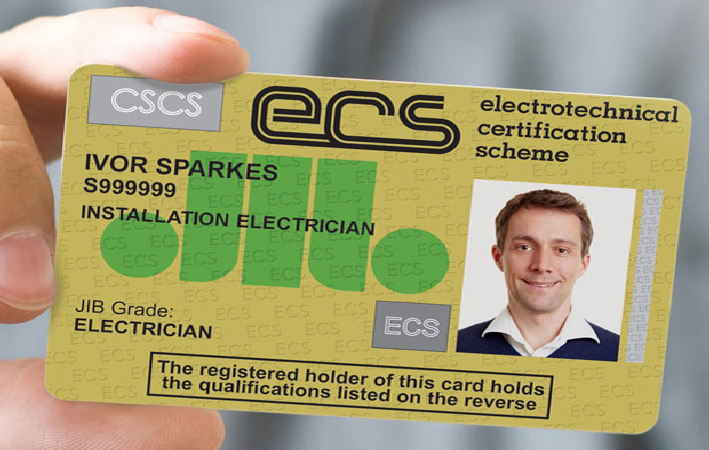Find out more about the training and qualifications needed to become a Gold Card Approved Electrician.

The qualifications required of an electrician will depend completely on the type of work you plan on carrying out, and the environment in which it will be undertaken.
Typically speaking, commercial electrical work requires a higher level of training and qualifications in comparison to domestic work, due to the scale and complexity of the challenges involved.
The JIB Gold Card, also known as the ECS Gold Card, is perhaps one of the most well-known certifications within the industry. Holding this card signals that a person has completed a formal industry regulated competency-based qualification, which combines technical theory with practical assessments to NVQ Level 3 standard.
What is the JIB?
The Joint Industry Board is an impartial organisation that sets the standards for employment, welfare, grading and apprentice training in the electrical contracting industry. It helps identify who should and shouldn’t be working on-site and exactly what kind of work they are capable of safely carrying out.
The JIB acts as an administrator to the Electrotechnical Certification Scheme (ECS) in the UK, which is why the card is often referred to by both names.
Why would you want/need a Gold Card?
The Gold Card is the highest identification on offer in the industry—recognised and accepted as proof of being a fully qualified electrician. This is now a necessity for anyone working in a commercial setting and on construction sites. It’s also a requirement for an electrician wanting to carry out work unsupervised.
Naturally, having the ability to work without supervision opens up an array of more advanced and senior employment opportunities, which can in turn translate to higher earning potential.
Should you go down the route of being self-employed, it also significantly opens up the scope of work you can take on while working for yourself.
What training is required to achieve Gold Card status?
You’ll need to reach your Level 3 NVQ before being accepted as a Gold Card Approved Electrician. If you already have experience and a strong knowledge of the industry, Able Skills can help you achieve this by having an assessor visit your place of work on two occasions to judge your competence.
Alternatively, for newcomers to the industry, the incredibly in-depth Gold Card Approved Electrician Package is our most comprehensive electrical programme, and covers everything you need on your journey to achieving accreditation.
Recent changes to the process mean those seeking Gold Card qualification have to apply for ‘ECS Registered Electrician’ status. This requires applicants to hold the latest edition wiring regulations qualification, while also meeting all the other Gold Card entry requirements.
How do you apply?
Once your Level 3 NVQ has been achieved, you’ll need to register and provide details of your experience and qualifications with the ECS.
The application process is straightforward and can be completed entirely online. For a full list of requirements, visit the ECS website.
Whether you’re just getting started out in your career as an electrician, or have been working in the industry for years, Able Skills offers a variety of routes to becoming Gold Card approved. If you’re unsure which course is right for your level of experience, our team would be happy to help.
Give us a call on 01322 280 202, request a brochure or pop into our training centre for a chat.